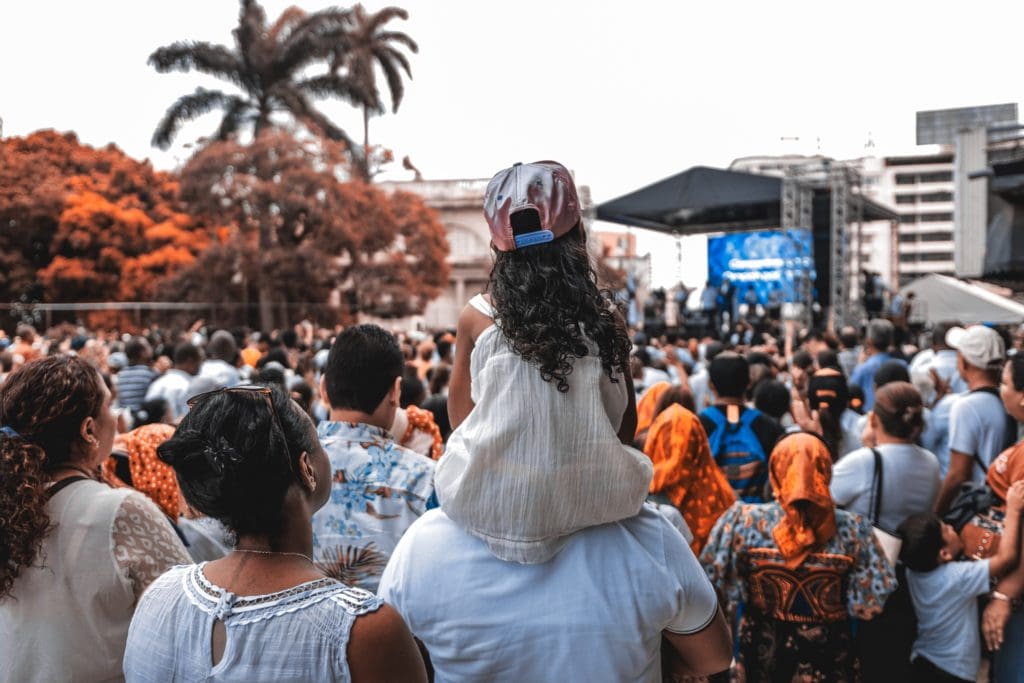
Have you ever rallied everyone to get out of the house and into the park? Congratulations, you are an organizer.
Have ever gotten a group to agree on a restaurant or what’s for dinner? Cheers, you are an organizer.
If you’ve ever successfully planned a birthday party, enlisted the help of a fellow parent to coach a youth sports team, or herded multiple family members through airport security in time for the flight, then I’m pleased to tell you: You’re an organizer.
The reality is that we are all called upon at one time or another to organize others to action. At America Walks, we’re dedicated to helping those who are working to make their communities more walkable, accessible, equitable and inclusive. If you are in that work, you have probably learned that good ideas are not enough – that one often has to call others to action with you.
So America Walks builds its communications around the good ideas that will make communities better, and how regular people can organize for change.
You Can Be An Effective Organizer
Advocacy organizing may sound complex (and there is indeed much that can be learned), but organizing can be defined simply. When asked how he organized, the legendary organizer Cesar Chavez said “First I talk to one person, then I talk to another person, then I talk to another person.” Organizing is built on relationships.
Organizing has also been defined as “using what you have to get what you want.” Working with others to identify messaging, strategy and tactics that tap into the latent power in the community to move toward a common vision.
But often, even when we have these abilities, we need help to harness and utilize that power. We’ve organized our website and our webinars around helping people make change. And we have years of experience with our Walking College, where one gain a deeper understanding of techniques of organizing, that build upon your existing knowledge of working with other people to get things done.
The Basics of Organizing and Campaigning
The words “power,” “campaigns,” “advocacy,” and “organizing” might cause one to pause. It’s not easy to enter into the public sphere and take a position that may invite criticism. It sounds political. And not every tactic is right for every person.
That’s why we have to determine what we need and then focus on how to get there. Organizing is about helping people to realize their own agency in the community. To help move them from head (“I know what is right”) to heart (“I want to change this”) to hands (“I will take these actions to create the changes that my community needs”).
Whether an individual is outside of government, in an agency, or in elected office will play a significant role in how one engages with advocacy, organizing and campaigns. It will be different depending on where you are coming from. But because organizing is such an innately human activity, we believe it has relevance to all who enter the public realm with ideas for change.
Which takes us to campaigns.
What Is A Campaign?
Campaigns can take many forms, but a simple definition is that campaigns are a series of linked tactics to achieve an objective – no matter how large or small the goal. If one phone call or letter could solve the problems you see, you wouldn’t be seeking to be part of the solution. And if the logic of our positions has not alone swayed decision makers or the public, then a campaign is required.
While campaigns may start with one theory of change or set of tactics, they’re also about developing the collective capacity to adapt to changed circumstances, and find a new path to the objective.
I’ll stop there and save for a later article the elements of a campaign plan. But from my own experience, the relationships built in campaigns have tied me even deeper into my community and are immensely rewarding.
For now, I ask you to consider whether you want to take your belief in your community, and your innate organizing abilities, and take it up a level. We are here for you. We invite you to connect with America Walks, browse our resources, attend our webinars, and consider applying for our Walking College.
The goals we all want to accomplish require a movement, and that means there is a place for your passion and skills.